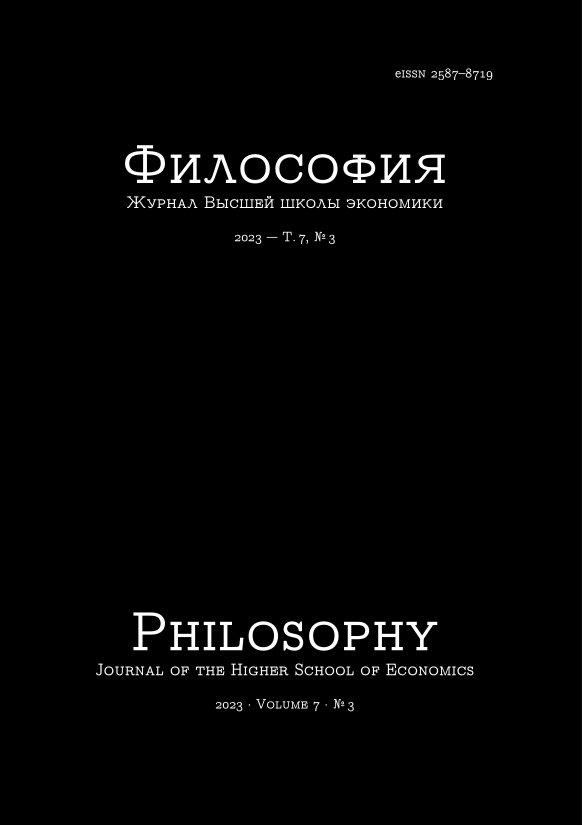Атеизм без свободы
проблема гетерономности эго в философии Александра Кожева
Аннотация
В статье рассматривается проблема гетерономности субъекта самосознания в рамках философского проекта французского неогегельянца Александра Кожева. Цель атеистической философии Кожева — возвращение человеку достоинства свободного существа в ситуации отсутствия внемирного бессмертного бога, например, в его христианском понимании. С этой целью Кожев прибегает к найденной или сконструированной им феноменологии Гегеля — Хайдеггера. Она помогает ему обнаружить происхождение человеческого самосознания из желания, а не из разума, как полагала классическая философия. Эта же феноменология используется им для аргументации принципиальной конечности (смертности) человека. В статье демонстрируется, что Кожев неэссенциалистски выводит появление человеческого самосознания из неприродного желания признания. Его аргументы, направленные в первую очередь против Декарта, призваны доказать автономность самосознания, что, согласно мысли Кожева, совпадает с атеистической интуицией о несуществовании Бога — как монотеистического, так и философского. Противоположный атеистскому теистический тезис, по мнению Кожева, делает самосознание гетерономным: мыслит и действует не человек, а бесконечный Бог, в то время как человек полностью лишается агентности как субъект. В статье предлагаются реконструкция аргументации Кожева по его текстам разных лет и ее анализ. Мы приходим к выводу, что свобода человека доказана Кожевом только в одном из узких смыслов этого слова. Критика теистической позиции необязательно приводит к доказательству автономности эго, как рассчитывал Кожев. Кроме того, исходя из поставленных им самим условий, мы делаем вывод, что контринтуитивный атеисту Бог не является единственным возможным условием гетерономности эго, что сближает Кожева с «мастерами подозрения».
Скачивания
Copyright (c) 2023 Philosophy Journal of the Higher School of Economics

Это произведение доступно по лицензии Creative Commons «Attribution-NonCommercial» («Атрибуция — Некоммерческое использование») 4.0 Всемирная.






